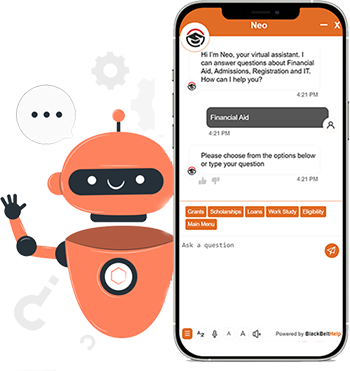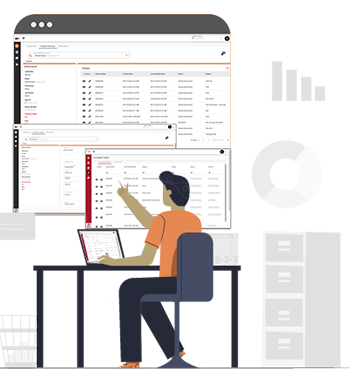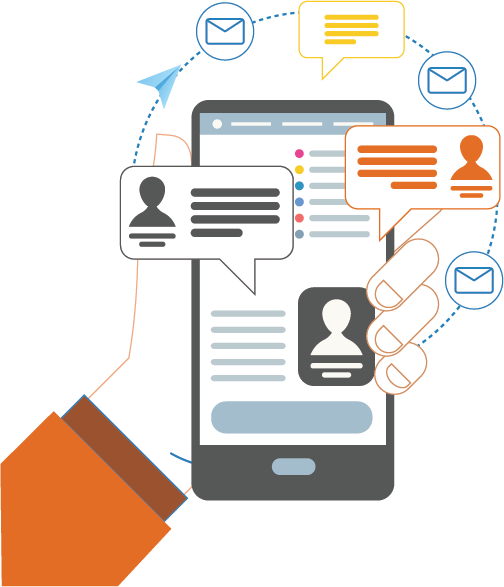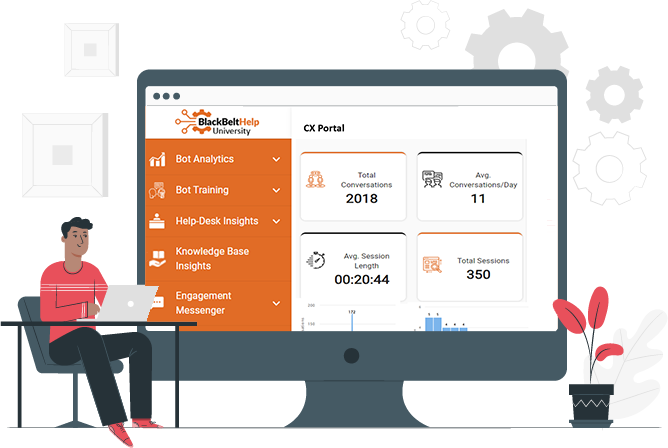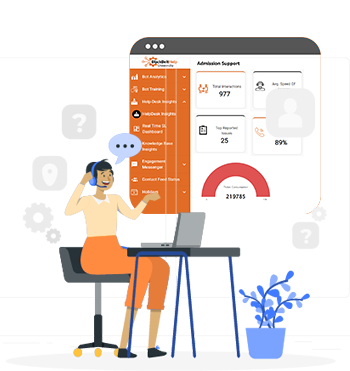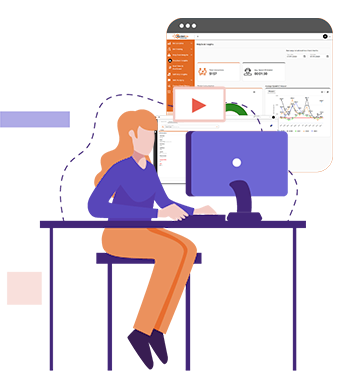Navigating Learning Management Systems: The Vital Role of Helpdesk Support

Learning Management Systems (LMS) play an increasingly pivotal role in higher education’s teaching and learning. In recent years, a number of trends can be observed in the eLearning space, such as the rise of MOOC platforms, personalized learning experience, the transition of LMS to learning experience platforms (LXP), and mobile learning.
Learning platforms are designed to facilitate the administration, documentation, tracking, reporting, and delivery of educational courses and training programs. They have become an essential tool in higher education as they provide a hub where educators can create and manage content, assess student performance, and foster interactive learning through tools like discussion forums and quizzes. LMS platforms are crucial in modern education because they streamline educational processes, improve accessibility to learning resources, support remote and blended learning models, and allow for personalized and flexible learning experiences. By leveraging LMS systems and LMS helpdesk, educational institutions can improve efficiency, ensure consistency in course delivery, and better meet the diverse needs of learners.
| Did you know? North America (The United States and Canada) sees the highest adoption of e-learning across the globe. The e-learning market value was $120 billion in America in 2021. |
Despite their numerous benefits, navigating LMS platforms can be challenging for students, educators, and administrators alike. These challenges can hinder the learning process, causing frustration and reducing the efficiency of educational institutions.
In this article, we will delve into the problems associated with LMS navigation and highlight the vital role of helpdesk support in resolving these issues.
The Problem: Navigating Learning Management Systems
Learning Management Systems are designed to streamline educational processes, but their complexity often presents several challenges:
- Technical Difficulties: Users frequently encounter technical issues such as login problems, software compatibility issues, and system errors that can disrupt the learning process.
- User Interface Confusion: LMS platforms often have intricate interfaces with numerous features and options. New users may find it overwhelming to locate specific tools or understand how to use various functionalities effectively.
- Access and Availability Issues: Students and educators may face difficulties in accessing course materials, submitting assignments, or participating in online discussions, especially during peak usage times.
- Customization Challenges: Institutions often need to customize their LMS to fit specific educational needs. This customization can be complicated, requiring technical expertise that typical users might not possess.
- Lack of Training: Adequate training on using LMS platforms is not always provided, leading to underutilization of features and inefficiencies in managing educational content and interactions.
These problems underscore the necessity of robust LMS support for higher education institutions to help users navigate LMS platforms effectively.
The Solution: The Vital Role of Helpdesk Support
Helpdesk support is indispensable in addressing the challenges associated with Learning Management Systems. Here’s how helpdesk support can make a significant difference:
- Technical Assistance:
- Immediate Problem Resolution: Helpdesk support provides timely assistance for technical issues, ensuring that users can quickly overcome obstacles and continue their learning activities without prolonged disruptions.
- System Maintenance and Updates: The helpdesk team ensures that the LMS is regularly updated and maintained, minimizing the occurrence of system errors and downtime.
2. User Guidance and Training:
- Personalized Support: Helpdesk personnel can offer personalized guidance to users, helping them understand the LMS interface and functionalities. This support is crucial for new users who may feel overwhelmed by the platform’s complexity.
- Training Sessions and Resources: Helpdesk support can organize training sessions, create instructional materials, and offer tutorials that empower users to maximize the benefits of the LMS.
3. Enhanced Accessibility:
- 24/7 Support: Offering round-the-clock helpdesk support ensures that users can get assistance whenever they encounter issues, regardless of time zones or peak usage times.
- Multichannel Support: Providing support through various channels—such as phone, email, live chat, and in-app assistance—ensures that users can reach out in the manner most convenient for them.
4. Customization and Integration Assistance:
- Expert Guidance: Helpdesk support can assist institutions in customizing the LMS to meet specific educational requirements, ensuring that the platform is tailored to enhance the learning experience.
- Integration Support: The helpdesk team can facilitate the integration of the LMS with other educational tools and systems, ensuring a seamless digital learning environment.
5. Continuous Improvement:
- Feedback Collection and Analysis: Helpdesk support can collect user feedback to identify common issues and areas for improvement. This feedback loop helps in refining the LMS and making it more user-friendly.
- Proactive Problem Solving: By analyzing support requests, the helpdesk can anticipate potential problems and address them proactively, reducing the likelihood of future issues.
- Proactive Problem Solving: By analyzing support requests, the helpdesk can anticipate potential problems and address them proactively, reducing the likelihood of future issues.
A robust helpdesk support system provides immediate technical assistance, personalized guidance, and training for users, ensuring they can navigate the LMS effectively. With 24/7 availability and multichannel support options, a help center can address issues promptly, minimizing disruptions and enhancing the overall learning experience. By assisting with system customization and integration, the help center also ensures the LMS is tailored to meet specific educational requirements, ultimately supporting a more efficient and engaging educational environment.
Conclusion
Learning Management Systems are powerful tools that revolutionize the educational landscape, but their complexity can pose significant challenges for users. Helpdesk support plays a vital role in navigating these challenges, providing technical assistance, user training, enhanced accessibility, and continuous improvement. By investing in robust helpdesk support, educational institutions can ensure that their LMS platforms are effectively utilized, leading to a more efficient and engaging learning experience for all users.

